Philippa York analysis: The unique Alaphilippe
'I never raced against a rider like him' says expert
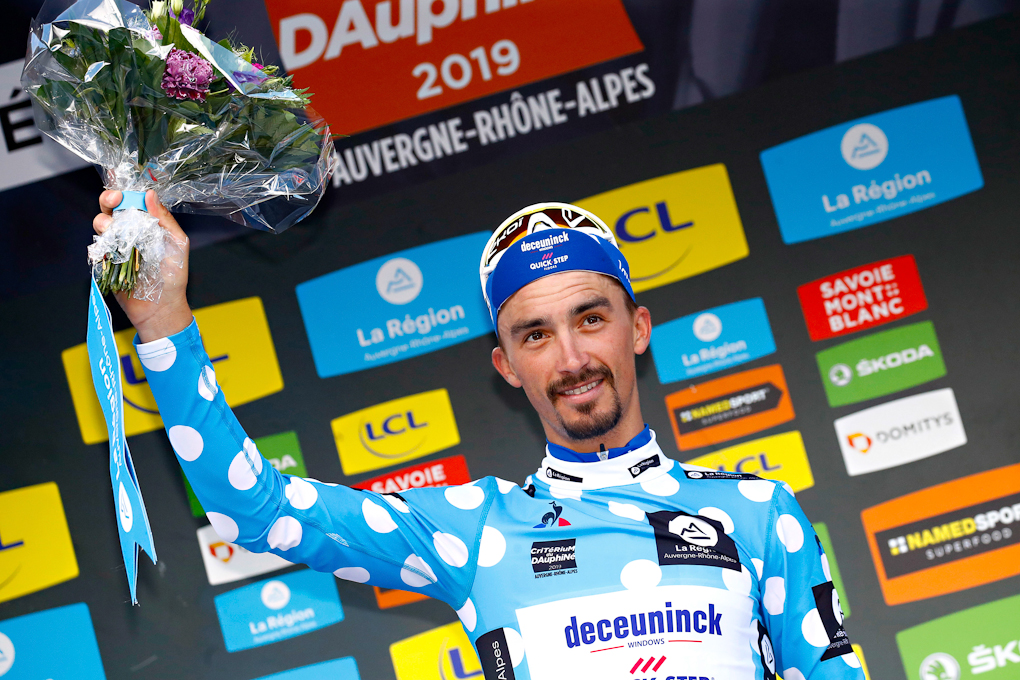
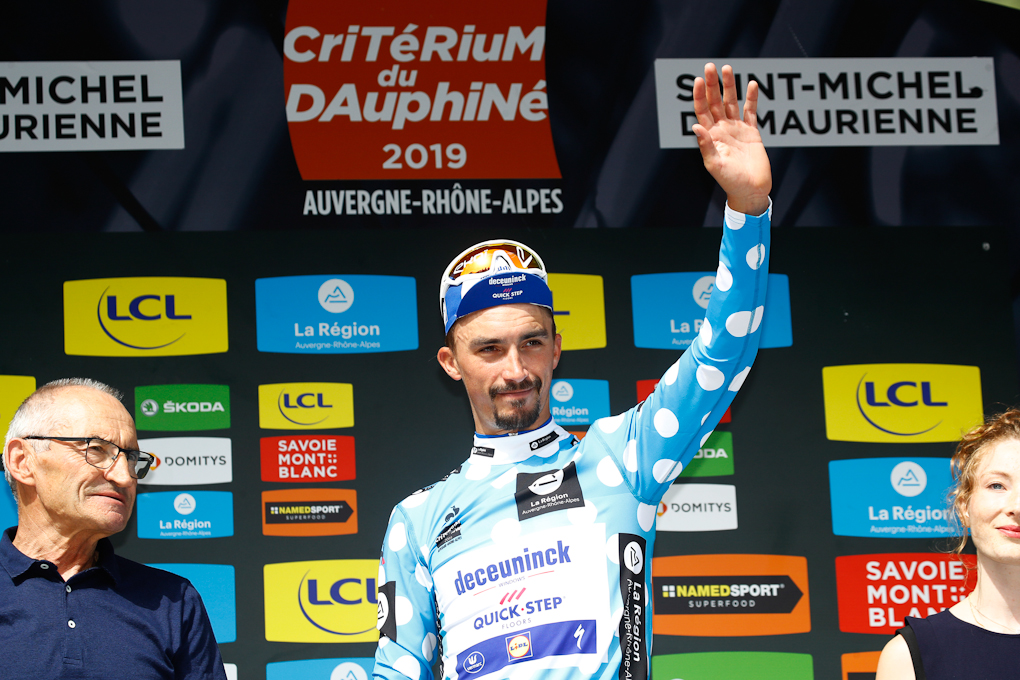
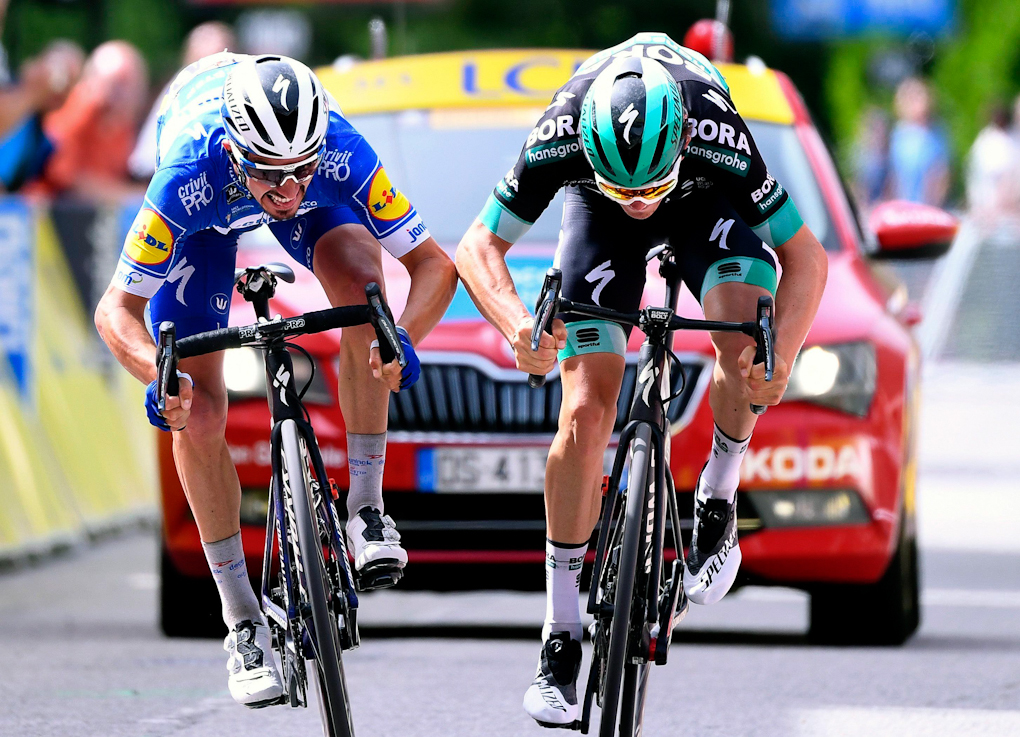
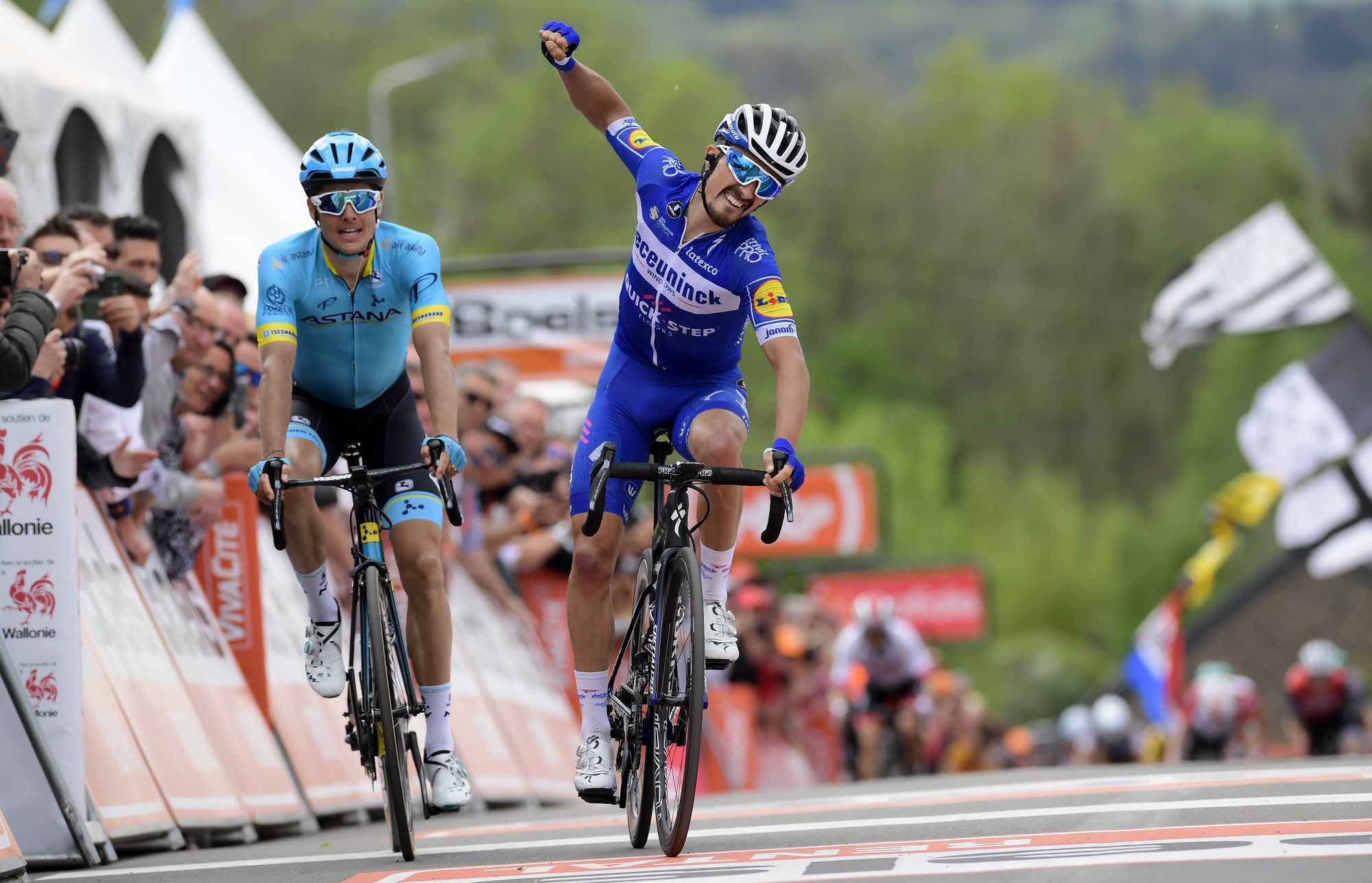
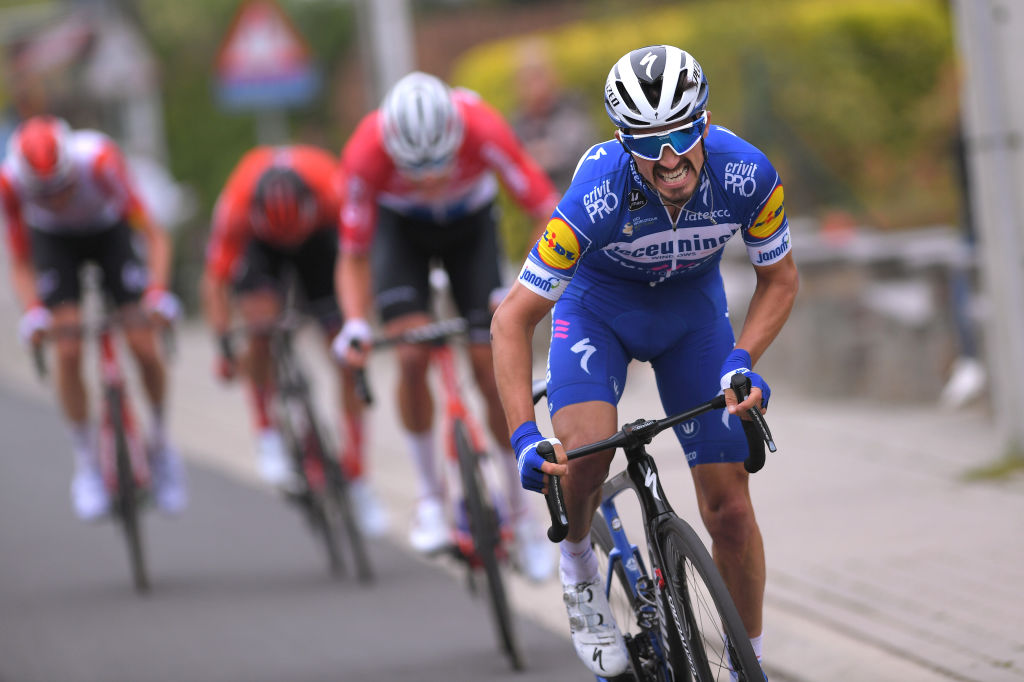
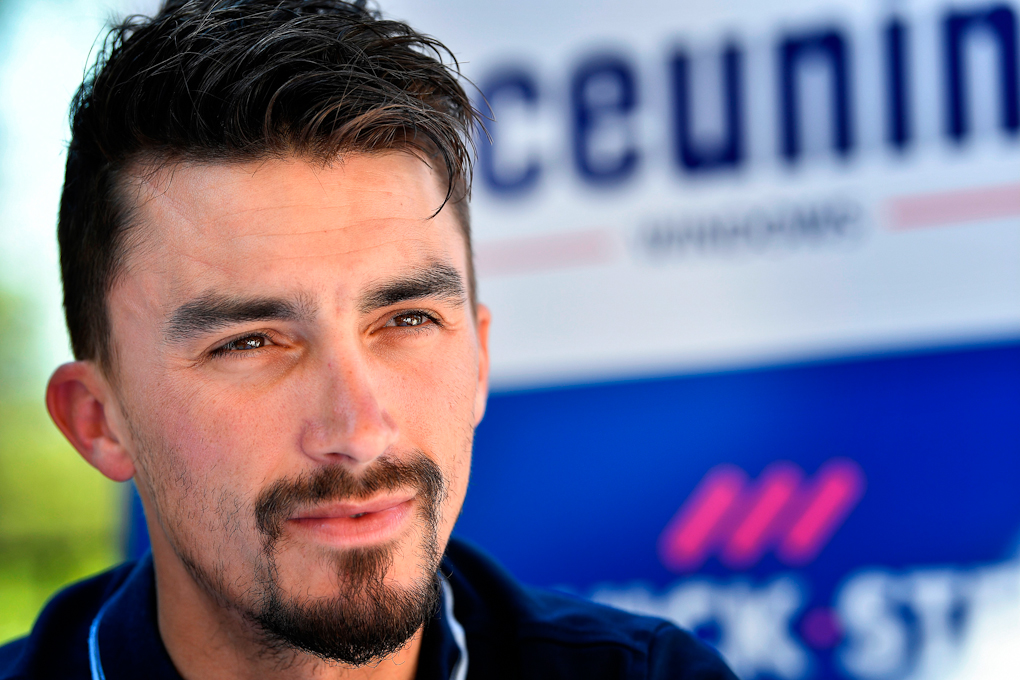
Typically, you can place riders into certain categories; some are sprinters, some are climbers, some are rouleurs. Occasionally, however, a rider who has the qualities attributed to all three categories comes along – think Merckx, Hinault, or Kelly.
It's not often that a rider who can do it all arrives on the scene, and there isn't even a guarantee that there'll be one in every generation, but when the stars align someone will burst onto the scene and be instantly recognisable by their burning ambition and their ability to take a victory whenever the opportunity presents itself.
In one sense, those riders are the ultimate weapon for a team to have on their roster, as winning is possible on all terrain and every race presents an opportunity. That often makes in-race tactics simpler for said rider and his squad but having a rider of this nature throws up challenges, too, because more often than not the opposition will base their plans around the 'do it all'.
As Peter Sagan found out during a spell earlier in his career, if you’re the strongest or the fastest, everyone else will treat you with fear, and quite often race against you.
Julian Alaphilippe is slowly but surely reaching that point. He's almost at the level where being present in a group means that no-one will want to ride with him. I say slowly because, for the moment, his medium-to-long time trial hasn't astonished anyone, and when it comes to stage races he’s not quite at the pinnacle. It might come, it might not but, even with his TT limitations, he's a phenomenon.
During the recent Critérium du Dauphiné, I was racking my brain trying to think of a rider that I had encountered during my career who compares to the Frenchman, but I quite quickly realised that there wasn't one. Sean Kelly could sprint and sometimes climb with the best, he won a Grand tour and multiple Classics, but there was always a weakness in the really big mountains.
Next was Laurent Jalabert, who, like Alaphilippe, was the King of the Mountains at the Tour de France. They’ve also both won Milan-San Remo and have both won many races in a sprint. However, there were distinct periods to each of those qualities when it came to Jalabert. At first, he was known as a sprinter, then he became a GC rider who could win time trials, then when that faded slightly he became a climber but, crucially, one who took the mountains classification from being in the break each day. Building a lead that way is a different prospect when you are no longer a part of the GC. He wasn't winning time trials then either.
Get The Leadout Newsletter
The latest race content, interviews, features, reviews and expert buying guides, direct to your inbox!

Alaphilippe, at this point, is a unique prospect. He climbs, he sprints, he goes in the break from the beginning of a race and is, more often than not, the last man standing at the finish - as he demonstrated on stage 6 at the Dauphine by beating Gregor Muhlberger with a track throw on the line after a 200km escape that also included Alessandro De Marchi.
When asked why he didn't celebrate with arms aloft, Alaphilippe was quite honest. "I wasn't sure to have won so it was better to win arms down than lose arms in the air. I was with a rider who was explosive and fast and I knew it was a strong headwind so I waited until the last moment to produce my effort."
Smart, respectful and, above all, professional, it's no wonder Deceuninck-QuickStep manager Patrick Lefevere wanted to keep him so badly, negotiating new terms just prior to beginning the real Tour de France countdown with these preparation races. There's a suggestion of inferiority with that description, but Alaphilippe’s stage 6 effort at the Dauphine had a special meaning to it.
"This is my first race in France this year, and though each victory is important, the Dauphine field is very strong. The ride we did today in rain, wind and then the heat with only three of us was special. I'm really worn out but happy. Today's sprint was a strongman's effort, we shared the workload equally and any of us deserved to win but I used my head as much as my legs.”
There hasn't been a polka dot jersey holder who won Milan-San Remo the following season since Eddy Merckx in 1970-71 and he didn't have to jump about like a jack-in-the-box. The mix of explosive acceleration in a flattish sprint at the end of a hard race, an ability to climb and descend mountains, and not only regularly being in the early escape but being the fastest when it lasts, is quite unique.
Yes, Merckx did it, but he had a team at his disposal; yes, Jalabert was similar, but only by separating each attribute to a different period of his career; and yes, Sean Kelly won more Classics and a Vuelta, but Alaphilippe has the strongest years of his athletic prowess ahead of him.
The other major thing about the Deceuninck-Quickstep rider is his popularity among cycling fans. It's very Sagan-esque. At the Dauphiné, Alaphilippe was loved by everyone - winning or not. Like I said, unique.
Philippa York is a long-standing Cyclingnews contributor, providing expert racing analysis. As one of the early British racers to take the plunge and relocate to France with the famed ACBB club in the 1980's, she was the inspiration for a generation of racing cyclists – and cycling fans – from the UK.
The Glaswegian gained a contract with Peugeot in 1980, making her Tour de France debut in 1983 and taking a solo win in Bagnères-de-Luchon in the Pyrenees, the mountain range which would prove a happy hunting ground throughout her Tour career.
The following year's race would prove to be one of her finest seasons, becoming the first rider from the UK to win the polka dot jersey at the Tour, whilst also becoming Britain's highest-ever placed GC finisher with 4th spot.
She finished runner-up at the Vuelta a España in 1985 and 1986, to Pedro Delgado and Álvaro Pino respectively, and at the Giro d'Italia in 1987. Stage race victories include the Volta a Catalunya (1985), Tour of Britain (1989) and Critérium du Dauphiné Libéré (1990). York retired from professional cycling as reigning British champion following the collapse of Le Groupement in 1995.
